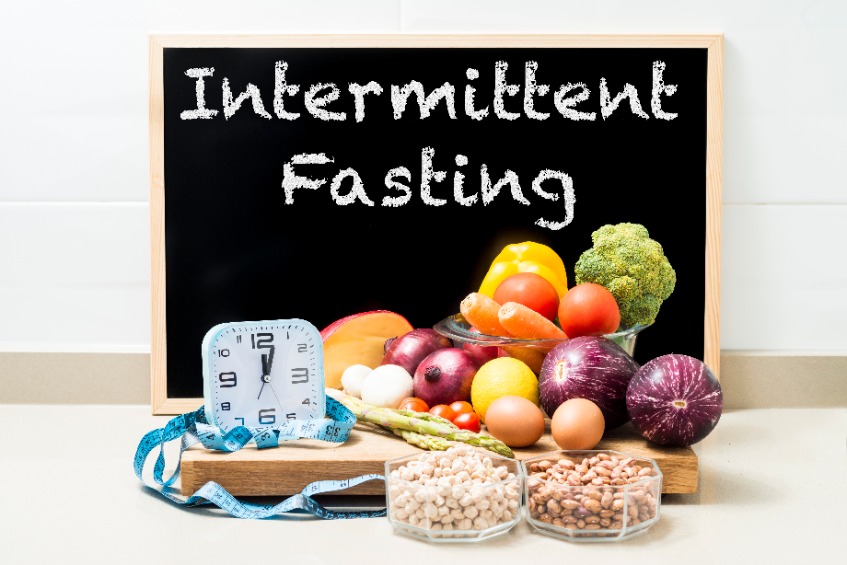Is intermittent fasting best for weight loss? According to the American Heart Association’s 2022 statistics, 40% of adults in the U.S. are obese; and the Association’s current diet and lifestyle recommendations to reduce cardiovascular disease risk include limiting overall calorie intake, eating healthy foods and increasing physical activity.
A recent six-year study showed intermittent fasting to be less effective than reducing caloric intake. It found that the timing from first meal to last meal was not associated with weight.
The study concluded that eating less overall and fewer large meals may be a more effective weight management strategy than restricting meals to a narrow time window, such as intermittent fasting.
The frequency and size of meals was a stronger determinant of weight loss or gain than the time between first and last meal, according to new research published today in the Journal of the American Heart Association, an open access, peer-reviewed journal of the American Heart Association.
According to the senior study author Wendy L. Bennett, M.D., M.P.H., an associate professor of medicine at Johns Hopkins University School of Medicine in Baltimore, although ‘time-restricted eating patterns’ – known as intermittent fasting – are popular, rigorously designed studies have not yet determined whether limiting the total eating window during the day helps to control weight.
Research Study: Is Intermittent Fasting Best for Weight Loss?
This study evaluated the association between time from the first meal to last meal with weight change.
• Nearly 550 adults from three health systems in Maryland and Pennsylvania with electronic health records were enrolled in the study. Participants had at least one weight and height measurement registered in the two years prior to the study’s enrollment period.
• Overall, most participants (80%) reported they were white adults and reported having a college education or higher.
• The average age was 51 years; and the average body mass index was 30.8, which is considered obese.
• The average follow-up time for weight recorded in the electronic health record was 6.3 years.
• The research team created a mobile application, Daily24, for participants to catalog sleeping, eating and wake up time for each 24-hour window in real time.
• Based on the timing of sleeping and eating each day recorded in the mobile app, researchers were able to measure:
1. the time from the first meal to the last meal each day;
2. the time lapse from waking to first meal; and
3. the interval from the last meal to sleep.
They calculated an average for all data from completed days for each participant.
The Results of the Study
The results of the study focused on answered the question “Is intermittent fasting best for weight loss?
• Meal timing was not associated with weight change during the six-year follow-up period.
• Total daily number of large meals (estimated at more than 1,000 calories) and medium meals (estimated at 500-1,000 calories) were each associated with increased weight over the six-year follow up, while fewer small meals (estimated at less than 500 calories) was associated with decreasing weight.
• The average time from first to last meal was 11.5 hours; average time from wake up to first meal measured 1.6 hours; average time from last meal to sleep was 4 hours; and average sleep duration was calculated at 7.5 hours.
• The study did not detect an association meal timing and weight change in a population with a wide range of body weight.
As reported by Bennett, even though prior studies have suggested intermittent fasting may improve the body’s rhythms and regulate metabolism, this study in a large group with a wide range of body weights did not detect this link. Large-scale, rigorous clinical trials of intermittent fasting on long-term weight change are extremely difficult to conduct; however, even short-term intervention studies may be valuable to help guide future recommendations.
Click here to learn more about is intermittent fasting best for weight loss.






